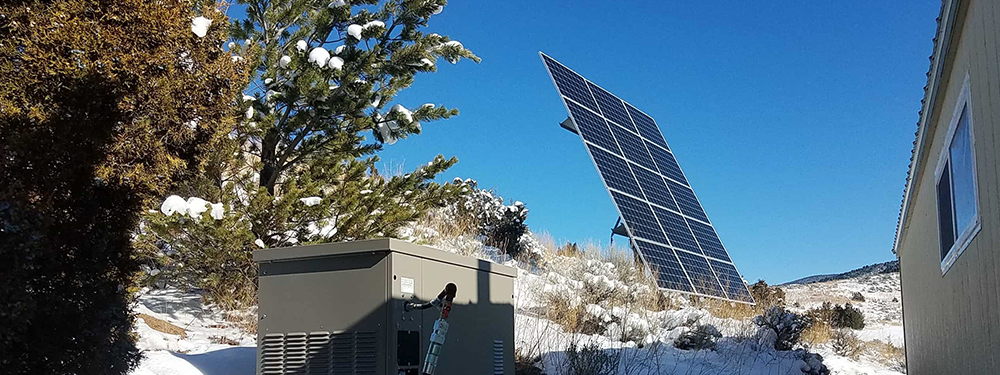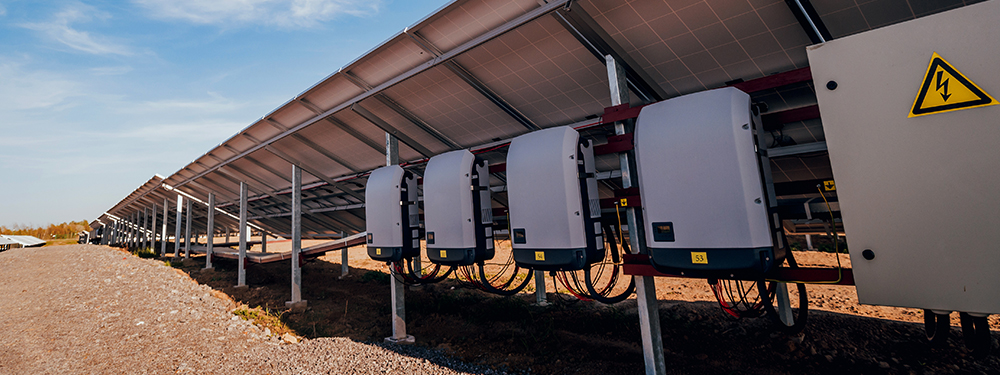This article is for educational purposes only, Unbound solar does not lease or buy land for equipment.
If you’re a farmer or rancher, you’ve likely been hearing about leasing your land to a solar developer.
This is because utility- and community-scale solar installations require a sufficient piece of land to place all the panels and required equipment.
A 1-megawatt solar farm needs around 5 acres, but larger-scale facilities need 50 acres or more.
It’s easy to see why solar developers are turning to farmers and ranchers to host their facilities.
For the landowner’s part, leasing parcels to solar companies can be an attractive option.
But is it the right choice for you?
We’ve put together a list of the pros and cons of turning part of your land into a solar farm to help you make an informed decision.
The Pros of Leasing Land to Solar Companies
In the US alone, there are 2,500 utility-scale solar farms.
That number continues to grow, which means solar developers frequently need more land for their facilities.
Teaming with a solar company has several benefits for farmers and ranchers.
Generates a Second Income Stream
The biggest draw for landowners is the extra cash generated from having a solar facility on your property.
When you host a solar farm, you receive rent payments from the company.
The amount you receive is based on several factors:
- Going rates for leases in your area
- Market demand
- How much work the company needs to do to prepare your land
- How close your land is to power lines and substations
Leasing land to a solar company provides you with an additional revenue stream.
Given the inconsistencies and uncertainties in the agricultural industry, having a reliable, steady second stream of income is a big deal.
Promotes Sustainable Farming Practices
Few people have better firsthand knowledge about the impacts of climate change than farmers and ranchers, and many of them lease land to solar companies to try to reverse the current trajectory.
Climate change can mean the following:
- More extreme weather conditions
- Increased drought severity and occurrences
- Higher flooding risks
- Late season frosts
- Increases in crop pests and pathogens
Participating in any activities that reduce carbon emissions is helpful to the agricultural industry.
By leasing land to solar companies, you contribute to sustaining the farming industry for future generations.
Additionally, many farmers and ranchers connect to the solar farm on their property for electricity, significantly reducing carbon emissions for their operations.
Allows Land Use for Other Farming Operations
Turning a portion of your land into a solar farm doesn’t necessarily make it incompatible with farming and ranching practices.
Though you would have to work out the details for continued use of the land (and make sure those details are spelled out in the lease), it is possible to continue using the land for other farming operations when leasing land to solar companies.
One great way for ranchers to continue to use the land is to get into the sheep business.
Sheep and solar farms are a perfect match.
The sheep don’t hurt the panels, and they keep the ground cover nicely mowed.
Some developers are already paying shepherds to keep their flocks on the solar farm because they don’t have to hire grounds crews to do the mowing.
Farmers may be able to grow new crops for specialty markets.
Heirloom tomatoes, peppers, and herbs do well in the shade of solar panels.
When leasing land to solar companies, you may also want to explore the option for planting pollinator gardens (some solar developers are taking the initiative to do this themselves, but it’s worth a discussion) and maintaining beehives.
Lowers Energy Costs
Your participation in the energy farm on your property saves you a lot of money on your power bill.
You can opt into the program for your business as well as your residence.
You may be able to lower your electricity costs to zero for part of the year.
Any money you don’t have to pay out to make your business function is more cash in your pockets.
Leasing land to solar companies provides you and the rest of your community a way to save on their utilities.
The Cons of Leasing Land to Solar Companies
Making an informed decision requires a fair assessment of the cons and the pros.
These are some of the most common factors that hold farmers and ranchers back in their decisions to convert part of their land to a solar facility.
Requires a Long-Term Commitment
When you sign a lease with a solar developer, you enter into a long-term commitment.
Most leases are at least 20 years, and many are 30.
Often, the solar company also wants to renew the lease for an additional 10 to 20 years.
That portion of your operation could be out of production for a substantial period.
Leasing land to a solar company does allow the soil to recover from agricultural operations when it sits fallow for the duration of the lease.
Interferes with Government Programs and Benefits
If you take some of your land out of production, it may affect your current agricultural use value status, bumping up your property taxes.
Your lease agreement should establish who is responsible for paying for these taxes.
If your land is already in a conservation reserve program, placing a solar farm on that parcel could violate the agreement.
Creates Issues Regarding Family Property Transitions
Given the long-term commitment associated with a solar farm lease, some farmers and ranchers worry about how it will impact their heirs.
If you have existing estate plans, wills, or legacy plans, you’ll need to revise them to reflect leasing land to a solar company.
Consult a financial planner or an attorney to provide insight on these issues.
Learn More about Leasing Land to a Solar Company
At Unbound Solar®, we want you to feel confident about your options for leasing land to solar companies.
Knowing the pros and cons can help you make the decision that is right for you.
If you need any more information about solar energy or solar farms, please feel free to get in touch.
We’re happy to help!




